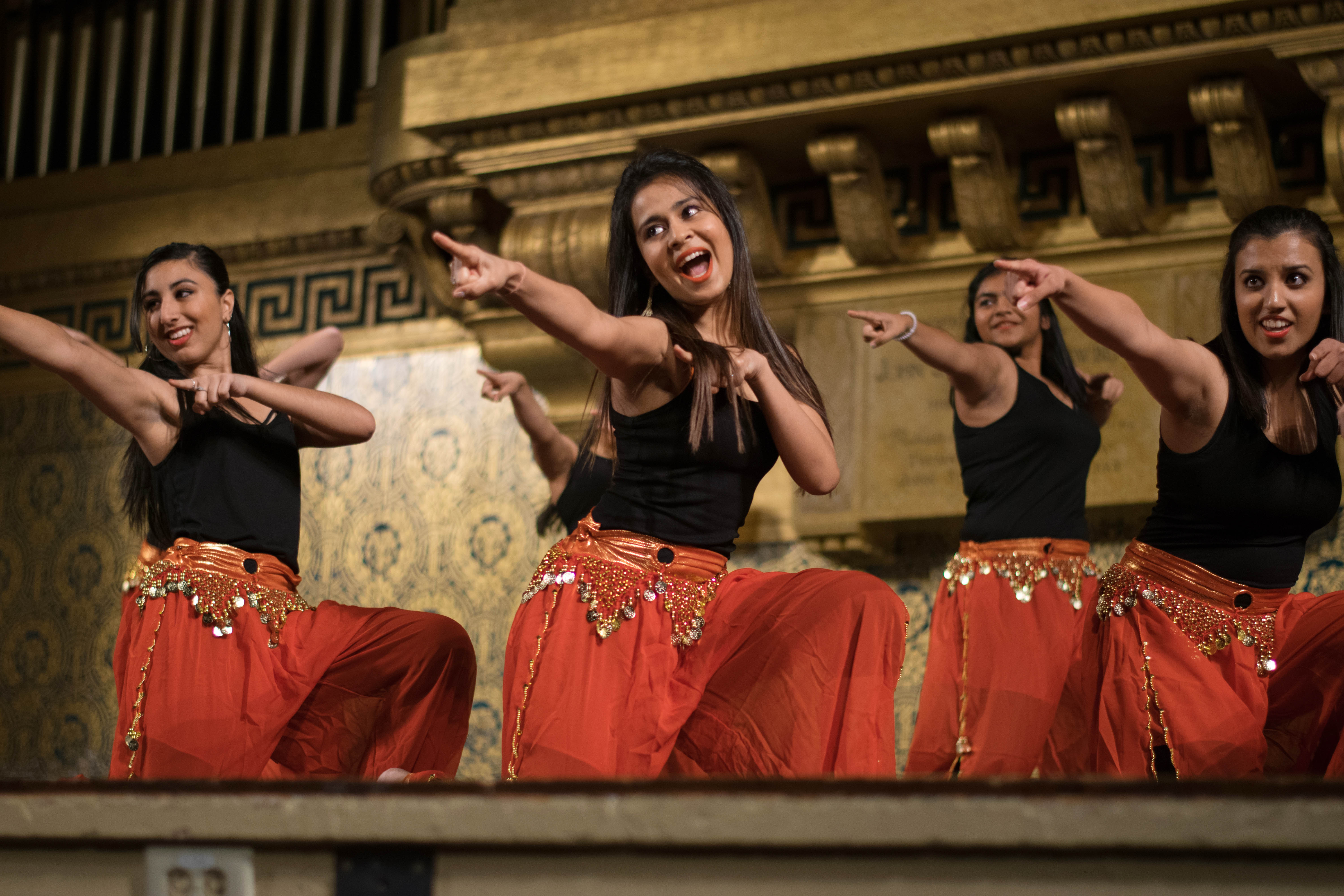
Vivian Dang
Variations of Bollywood, hip-hop and classical Indian tunes filled Woolsey Hall last Friday during the South Asian Society’s annual Roshni showcase, which featured 11 acts.
For the first time in recent history, graduate students at the Jackson Institute of Global Affairs, the School of Management, the School of Medicine and Yale Law School were involved in a separate performance that mirrored the four Yale College “class acts.” Co-president Rohan Naik ’18 said that it was important for graduate students to be involved in this year’s Roshni because it created bonds among South Asians on campus. He added that although Roshni, which first debuted in 2002, is a celebration of South Asian identity, it is intended to foster relationships with members of the New Haven and Yale communities who do not identify as South Asian or South Asian-American.
“Roshni is important because it creates a sense of solidarity among South Asian undergraduates and graduate students, which is helpful for identity purposes and also for that community,” said Naik, a former staff reporter for the News. “I think it’s something that people without a South Asian background haven’t really experienced, so it’s nice that they might not have seen a show like this before and that we can provide them that insight.”
Co-cultural chair Ipsitaa Khullar ’19 said that there was greater urgency in the organization process leading up to the show, since it was held two weeks after fall break rather than the usual three weeks. Still, she was pleased with the audience turnout, which she thought benefited from the number of graduate students who attended and performed.
The show’s premise evoked traditional Indian court life as the hosts, Ashesh Trivedi ’18 and Diksha Brahmbhatt ’18, took on the roles of a royal couple who had been transported into modern times.
Themes about political engagement and cultural identity were central, as Naik and SAS co-president Kanan Shah ’18 highlighted the importance of South Asian-American political influence during their introductions. They also cited previous political events that the South Asian Society held earlier this semester such as a discussion in late October examining the power of the South Asian-American vote.
As an international student and the co-captain of the Indian dance group Yale Kalaa, Khullar said the vibrant dances at Roshni remind her of wedding celebrations at home. She added that she appreciates the curiosity some classmates express when it comes to traditional South Asian dance.
“In India, your friends don’t think you’re cool [if you’re a classical dancer] since you’re not doing something like hip hop,” Khullar said. “Here, it’s completely different. People are very curious because it’s not common.”
Kalaa was initially founded by Yamini Naidu ’17 but expanded last year. Last fall, the group held its first fusion performance of Bharatanatyam and Kathak dances — two different forms of classical Indian dance – at Roshni.
Archie Rajagopalan ’19, co-captain of undergraduate Bollywood fusion group Rangeela, performed Indian classical dance prior to coming to Yale but transitioned to Bollywood fusion once she arrived on campus. Rajagopalan feels that the mixed dance styles reflect her own identity as an Indian-American.
“For me, Rangeela was a way to continue dancing,” Rajagopalan said. “Some people do it to immerse themselves in the culture, but other people do it because they think that Bollywood dancing is cool, and they love to dance. It’s a very fun, low stress outlet.”
Shreni Shah ’18, captain of competitive South Asian dance team Monst-RAAS-ity, said she loves to have non-South Asians on her team as she feels she is able to share part of her culture with the rest of the school. She also felt that Roshni’s “class acts” helped include Yale community members who might not have time to be on the dance team but were interested in getting involved.
Recently, the different South Asian dance teams have hosted more joint events to build cohesion, such as a beginning-of-term showcase and a Family Weekend performance. Naoka Gunawardena ’18, business manager of South Asian acapella group Sur et Veritaal, said she feels community building is central to both the group’s identity and to Roshni.
“What’s unique about Sur et Veritaal, compared to other acapella groups, is that it’s a cultural singing group that brings South Asian and Bollywood music with an American spin to people on campus,” Gunawardena said. “Different people of different backgrounds can still come together and enjoy the music. [Similarly], Roshni brings together different South Asian cultural groups so that a diverse community of people can enjoy the music and performances.”
On Feb. 4, the South Asian Society will hold the South Asian Millennials Conference to discuss issues surrounding South Asian identity.







